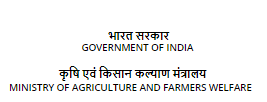Photoautotrophic micropropagation/PAM technology for multiplication of potato microplants and their simultaneous hardening
Background:
The total production of seed potato increased 5-fold in the past five decades, but the overall productivity is low 24.5 q/ ha, mainly attributed to non- availability of quality planting material of suitable high yielding varieties with the farmers. The vegetative mode of propagation transmits viral and seed borne diseases to the next generation. Viruses are carried by insect vectors viz. aphid and whiteflies which are prevalent in the sub-tropical conditions. Potato produced under these conditions cannot be used as seed and has to be replaced. Seed production is restricted to regions and weather conditions having low vector population and free from soil borne diseases, mainly found in the Northwestern part of India in the winter season. The restricted seed production areas impose a restriction on transportation of seed from these regions to the potato producing areas spread all over the country. The potato seed which is a tuber, is a bulky semi perishable commodity and its transportation and cold storage further escalates the cost of seed.:
In this scenario of low availability and high cost of potato seed farmers rely on truthfully labelled seed from private sector and most of the farmers multiply seed through informal seed systems where quality of the seed is not assured and is often infected with viruses leading to poor productivity in the farmers’ fields. The overall seed replacement rate is also quite low. Tissue culture and aeroponics techniques have revolutionized the potato seed production scenario in the country. But are very expensive systems, limited only to the government agencies and big companies in the private sector. Somaclonal variation and epigenetic changes occur in tissue culture cause loss in genetic identity of varieties.:
Technology Details:
The aforesaid constraints offer a window of opportunity for development of an alternate cheaper technology with the stakeholders to multiply their own seed or commercially even in non-conventional seed production areas. This is bound to change the whole planting material availability scenario in the country. Development of a more economical rapid multiplication method will ensure availability of quality planting material to the growers locally. The photoautotrophic micropropagation (PAM) technology as proposed here has been standardized for rapid multiplication of potato microplants and hardening. The technology is a replacement to the tissue culture technique currently being employed for rapid multiplication of quality planting material. The PAM technology is quite easy and economical and can be easily performed by semi-skilled personnel, with minimum infrastructure. It yields highly vigorous plants, which can be directly transplanted to external environment without the hardening process to yield tubers, which can further be multiplied as seed.


